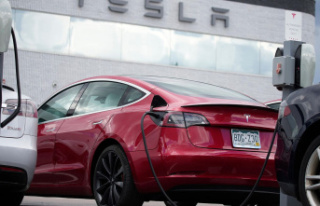From the point of view of the Federation of German Industries (BDI), faster approval procedures for wind turbines, for example, are central to the country's climate-friendly conversion. "The BDI assumes that there will be a need to double the approval procedures for wind energy and industrial plants over the next eight years," said President Siegfried Russwurm of the German Press Agency. "Federal and state authorities will have to issue around 20,000 permits for both industrial plants and wind turbines by 2030."
Russwurm criticized the fact that the coalition agreement between the SPD, the Greens and the FDP agreed to halve the length of the procedure by at least half. "The federal government must reduce the length of the procedure even more. Slow procedures cost companies money and competitiveness and endanger the achievement of climate policy goals."
Russwurm criticized the way the approval authorities work. Whenever a company decides on a major investment today, a 3D model is a matter of course. "It can't be that you then have to print out hundreds of A4 pages for the official approval of this project. The poor person in the authority has to put those kilometers of A4 pages back together in his head." Public administration needs more digitization and speed.
In general, the state allows itself a lot of complexity that needs to be questioned, according to Russwurm, who lamented what he saw as the excessive controls in companies. "In this country there is a certain basic skepticism towards entrepreneurs according to the motto: 'They have to be checked completely.' That creates enormous bureaucratic effort in companies and authorities, for example with corporate taxes and in the supply chain law. "More efficient would be more trust in entrepreneurship and only random samples or controls related to specific priorities."












